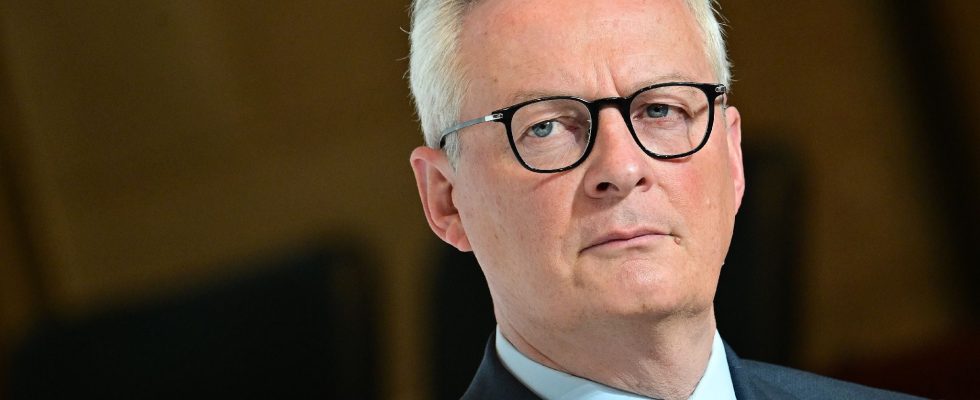The old lady was right. On September 18, economists at the Banque de France announced that French GDP growth would be around 0.9% in 2024. Far, very far, from the 1.4% retained by the government in constructing the budget. Heard a few days later by the Finance Committee of the National Assembly, Bruno Le Maire explained this.
With a touch of condescension for the venerable house governed by François Villeroy de Galhau: “As for growth, then pointed out the Minister of the Economy, I would remind you that our forecast is in line with those of the OECD and the IMF – 1.2% and 1.3% respectively. As for the Banque de France’s forecast, the institution’s low estimate for growth in 2023 was minus 0.5%, a difference of 1. 5 compared to what France has achieved. This leads me to think that our growth forecast for 2024 is realistic and sincere.”
Sunday evening, with a gloomy face, Bruno Le Maire went to Canossa. On TF1 news, he confirmed what the Banque de France has been saying for months: growth will be less strong than expected this year, of the order, lo and behold, of 1%. And to meet its public deficit objective of 4.4% of GDP, the government will have to immediately find 10 billion euros in additional savings.
Otherwise, the rating agencies could well lose patience and downgrade France’s rating. The timetable is tight: Fitch and Moody’s will deliver their verdict on April 26, before the even more crucial one from Standard & Poor’s on May 31. A sanction that the presidential majority wants to avoid at all costs. The European elections which will be held immediately, on June 9, already promise to be painful for her. If agencies add salt to the wound, they risk turning into torture.
Planing on all levels
To save the furniture, the Minister of the Economy has outlined two avenues: reducing operating expenses in all ministries, to the tune of 5 billion euros. And the reduction of various envelopes: public development aid, the MaPrimeRénov system – increased by 1.6 billion euros in October, now reduced by 1 billion – and the budgets allocated to state operators such as Business France , the National Agency for Territorial Cohesion or France Compétences.
Planing, without overall reflection on the purpose and effectiveness of public spending, but which offers an immediate political advantage: that of not having to defend an amending budget before Parliament, with the help of 49.3, and thus avoiding a possible motion of censure on the eve of the European elections. Even if it means presenting, in due form this time, a collective budget in the summer, once the vote has passed.
Geopolitics, a catch-all argument
According to Bruno Le Maire, this small accounting kitchen would be made necessary by the “new geopolitical context”. “The war in Ukraine, the clashes in the Middle East, the difficulties in the Red Sea, a very marked economic slowdown in China, a recession in 2023 in Germany” are leading Bercy today to revise French growth downwards. In short, if the 2024 finance law, adopted just before Christmas, finds itself obsolete during the following holidays, it is because the whole world has plunged into chaos in the space of a few weeks… We have known a more “realistic” argument and sincere -“. Russia invaded its neighbor in February 2022. The three largest German forecasting institutes predicted economic decline across the Rhine in September of the same year. And it was in 2022, once again, that China recorded the worst growth in its GDP (3%) in forty years, with the exception of 2020, the dark year of Covid. If there is a “geopolitical context”, its “novelty” is less and less obvious.
“Every year, it’s the same speech, the same suffering from ministers ordered to cut their budgets, the same protests from those who benefited from this spending or tax assistance and, in the end, the same result: the France remains the world champion in public spending and its deficit is reduced marginally, before, in general, increasing significantly again,” predicted our columnist Nicolas Bouzou a few months ago. Here we are. As for the 10 billion savings that the State is trying to pull out of its hat, they look more like a big snake than a lively rabbit.
.
